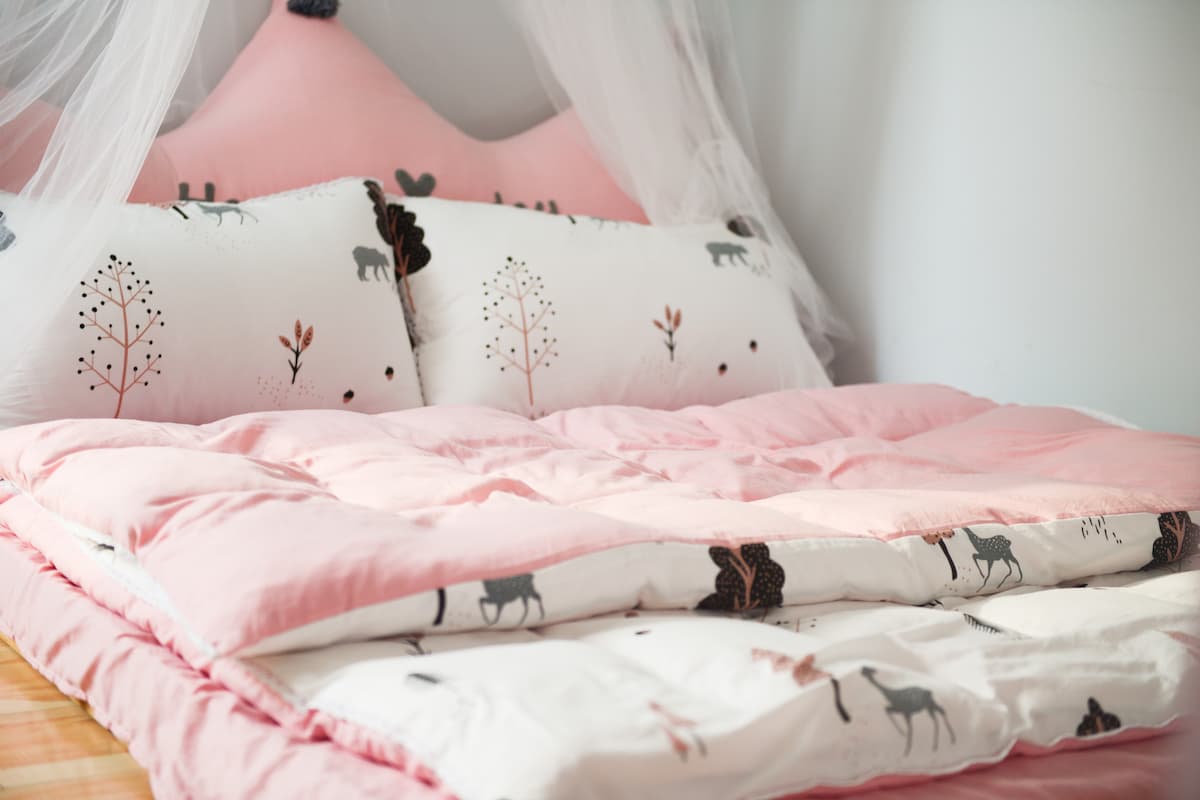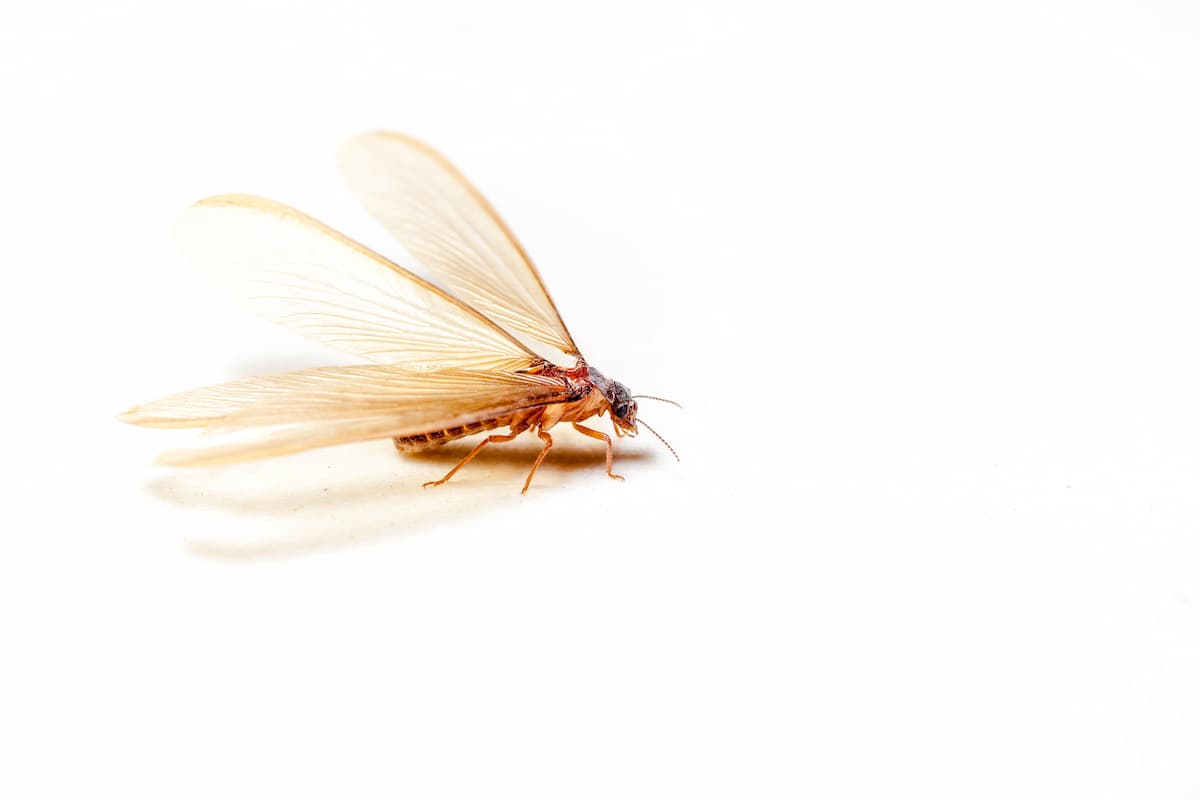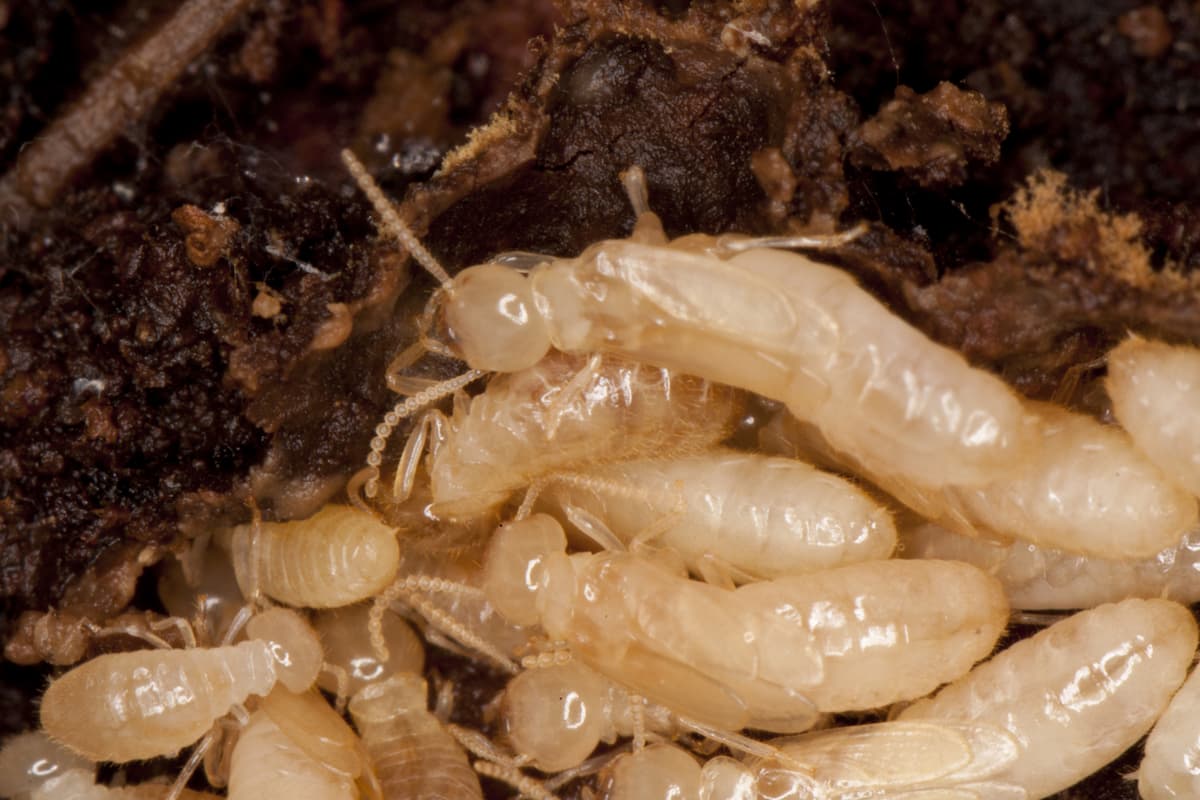Do Termites Get in Your Bed?
Our beds are where we go to relax from the day’s worries.
And that’s why the idea of pests getting under the sheets with us can be so upsetting.
Thankfully, it is doubtful that you will get termites in your bed unless you have a huge infestation. With that said, though, termites can eat wooden bed frames and possibly even your bedclothes if they wish.
Do Termites Live in Beds?

Generally, termites will not live in beds.
Some termites can not even survive if they make a nest in your mattress or the wood of your bed frame because they can not get enough moisture there.
Also, termites wouldn’t really want to live in your bed because it makes them feel exposed, and termites prefer to hide as much as possible to keep themselves safe.
Thus, a piece of furniture that someone uses all the time, like a bed, will not be an ideal place for a termite colony.
However, finding a termite or two in your bed wouldn’t be that odd, especially if you have a significant infestation in your home.
Termites will eat anything containing cellulose, and you probably have items with this substance in your bed.
Will Termites Eat My Bed?
Termites will eat anything that contains cellulose, a substance found in plant cells.
So, if your bed frame consists of anything containing cellulose, such as wood, termites might choose to eat it.
Termites also consume many kinds of fabrics, including cotton, so they could start munching on your bedclothes and mattress as well.
In general, though, as I stated above, termites probably won’t eat your bed.
Since termites like to stay hidden, it is much more likely that they will remain in your walls, where they will continue to chew on your home’s framework instead.
And yes, I know the thought of bugs eating your home isn’t comforting, but at least you don’t have to worry much about a termite climbing in under your sheets.
Do Termites Bite?

If you are worried about termites finding their way into your bed, you may also want to know if they bite.
Well, termites do bite but only on rare occasions.
Termites do not consume human blood like bed bugs or mosquitos, so there is no incentive for them to bite you.
Yet, if a termite feels threatened, it may decide to bite you as a warning.
Are Termite Bites Dangerous?
No, termite bites are not dangerous.
Termites are not poisonous, and they do not transmit disease.
Those who have experienced termite bites describe it as a slight sting that isn’t too painful.
Then, afterward, most people just get a small bump that goes away after a few days.
Is it Dangerous to Sleep in a Room With Termites?
In most cases, it is not dangerous to sleep in a room with a termite infestation.
It is unlikely that the termites will even bother you when you’re asleep.
Yet, termites do become dangerous when they cause significant structural damage to the building.
The most common way people are injured when they live in a building with termite damage is by falling through the floor after the termites have eaten it away.
So, if your floor has started to feel weak when you step on it or is warped, you should have a professional inspect it to determine if it is safe.
You should also be aware that termites can cause allergy symptoms and worsen asthma.
Since termites gnaw on wood, their presence often leads to wood particles getting into the air and circulating through the home.
Similarly, because termites walk through isolated areas in your home’s framework, they sometimes kick up dust, which can also affect the air quality in your house.
Additionally, there is a risk of termites spreading mold.
Many termite species prefer to live in damp areas, and since this is where mold is the most common, they can sometimes get mold spores on them and bring them to other places.
And mold can be rather dangerous, especially for people with certain health issues.
Overall, I’m saying that living in a room with termites isn’t usually dangerous but can be in certain circumstances.
For most people who have a small or moderate termite infestation, being in a home with them is solely uncomfortable.
Can Termites Live…?

Now that we’ve talked about the potential for termites living in beds, let’s discuss whether they will live in other places, such as…
On My Clothes?
Termites can eat clothes, meaning you may see them on the clothes in your drawers.
However, since termites prefer to stay hidden in the framework of buildings, they probably won’t infest your wardrobe.
But, they may if they decide to do so.
As for clothes you are currently wearing, termites probably won’t hang around on them.
Any termites that get onto your clothes in your drawers will most likely run away when you pick the clothes up.
Yet, there is a slight chance that a termite could cling to your clothes while you’re wearing them, but it will likely jump off at the first opportunity it gets.
In My Hair?
Termites will not live in your hair in the same way that lice do because termites have no reason to be there.
If you do happen to find a termite in your hair, you are likely dealing with a very confused insect that just wants to get away from you and find its colony.
In My Ear?
Termites will not and can not live in your ear because there is nothing for them to eat there.
However, a termite could possibly crawl into your ear.
But, since termites don’t really like to be near people, it is doubtful that this will happen.
On Furniture?
Yes, some termite species can nest on furniture.
Most termites particularly like to infest and eat outdoor furniture.
Thus, you should check your furniture periodically for signs of termites and other insects.
Conclusion
In most cases, termites will not get into your bed because they don’t like to be around humans.
Yet, you should keep in mind that termites can eat wooden bed frames as well as your bedclothes if they wish.
They can also cause structural damage to your house and worsen allergy and asthma symptoms.
